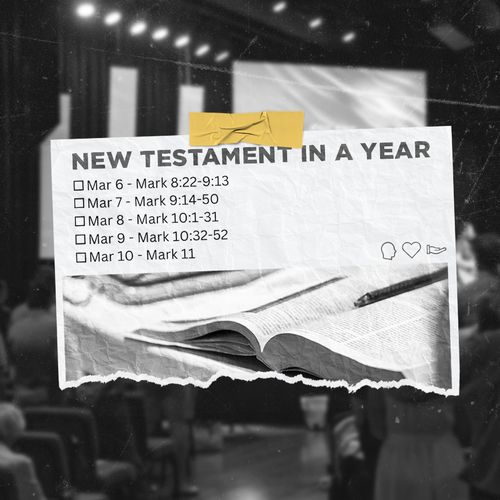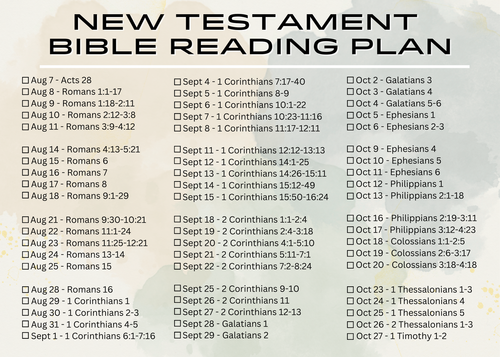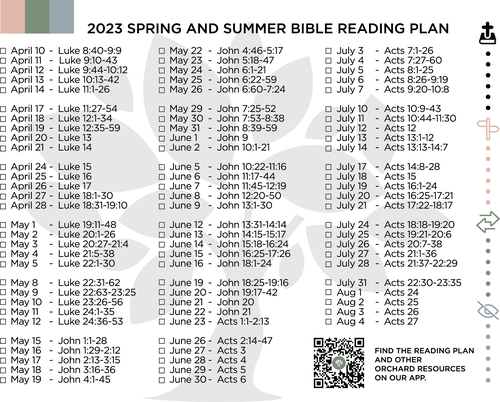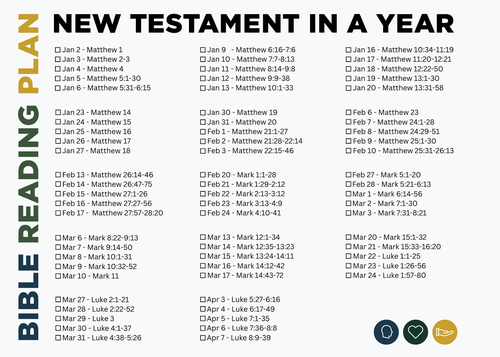Hosanna

The Triumphal Entry
Now when they drew near to Jerusalem, to Bethphage and Bethany, at the Mount of Olives, Jesus sent two of his disciples and said to them, “Go into the village in front of you, and immediately as you enter it you will find a colt tied, on which no one has ever sat. Untie it and bring it. If anyone says to you, ‘Why are you doing this?’ say, ‘The Lord has need of it and will send it back here immediately.’” And they went away and found a colt tied at a door outside in the street, and they untied it. And some of those standing there said to them, “What are you doing, untying the colt?” And they told them what Jesus had said, and they let them go. And they brought the colt to Jesus and threw their cloaks on it, and he sat on it. And many spread their cloaks on the road, and others spread leafy branches that they had cut from the fields. And those who went before and those who followed were shouting, “Hosanna! Blessed is he who comes in the name of the Lord! Blessed is the coming kingdom of our father David! Hosanna in the highest!”
And he entered Jerusalem and went into the temple. And when he had looked around at everything, as it was already late, he went out to Bethany with the twelve.
Jesus Curses the Fig Tree
On the following day, when they came from Bethany, he was hungry. And seeing in the distance a fig tree in leaf, he went to see if he could find anything on it. When he came to it, he found nothing but leaves, for it was not the season for figs. And he said to it, “May no one ever eat fruit from you again.” And his disciples heard it.
Jesus Cleanses the Temple
And they came to Jerusalem. And he entered the temple and began to drive out those who sold and those who bought in the temple, and he overturned the tables of the money-changers and the seats of those who sold pigeons. And he would not allow anyone to carry anything through the temple. And he was teaching them and saying to them, “Is it not written, ‘My house shall be called a house of prayer for all the nations’? But you have made it a den of robbers.” And the chief priests and the scribes heard it and were seeking a way to destroy him, for they feared him, because all the crowd was astonished at his teaching. And when evening came they went out of the city.
The Lesson from the Withered Fig Tree
As they passed by in the morning, they saw the fig tree withered away to its roots. And Peter remembered and said to him, “Rabbi, look! The fig tree that you cursed has withered.” And Jesus answered them, “Have faith in God. Truly, I say to you, whoever says to this mountain, ‘Be taken up and thrown into the sea,’ and does not doubt in his heart, but believes that what he says will come to pass, it will be done for him. Therefore I tell you, whatever you ask in prayer, believe that you have received it, and it will be yours. And whenever you stand praying, forgive, if you have anything against anyone, so that your Father also who is in heaven may forgive you your trespasses.”
The Authority of Jesus Challenged
And they came again to Jerusalem. And as he was walking in the temple, the chief priests and the scribes and the elders came to him, and they said to him, “By what authority are you doing these things, or who gave you this authority to do them?” Jesus said to them, “I will ask you one question; answer me, and I will tell you by what authority I do these things. Was the baptism of John from heaven or from man? Answer me.” And they discussed it with one another, saying, “If we say, ‘From heaven,’ he will say, ‘Why then did you not believe him?’ But shall we say, ‘From man’?”—they were afraid of the people, for they all held that John really was a prophet. So they answered Jesus, “We do not know.” And Jesus said to them, “Neither will I tell you by what authority I do these things.”
Now when they drew near to Jerusalem, to Bethphage and Bethany, at the Mount of Olives, Jesus sent two of his disciples and said to them, “Go into the village in front of you, and immediately as you enter it you will find a colt tied, on which no one has ever sat. Untie it and bring it. If anyone says to you, ‘Why are you doing this?’ say, ‘The Lord has need of it and will send it back here immediately.’” And they went away and found a colt tied at a door outside in the street, and they untied it. And some of those standing there said to them, “What are you doing, untying the colt?” And they told them what Jesus had said, and they let them go. And they brought the colt to Jesus and threw their cloaks on it, and he sat on it. And many spread their cloaks on the road, and others spread leafy branches that they had cut from the fields. And those who went before and those who followed were shouting, “Hosanna! Blessed is he who comes in the name of the Lord! Blessed is the coming kingdom of our father David! Hosanna in the highest!”
And he entered Jerusalem and went into the temple. And when he had looked around at everything, as it was already late, he went out to Bethany with the twelve.
Jesus Curses the Fig Tree
On the following day, when they came from Bethany, he was hungry. And seeing in the distance a fig tree in leaf, he went to see if he could find anything on it. When he came to it, he found nothing but leaves, for it was not the season for figs. And he said to it, “May no one ever eat fruit from you again.” And his disciples heard it.
Jesus Cleanses the Temple
And they came to Jerusalem. And he entered the temple and began to drive out those who sold and those who bought in the temple, and he overturned the tables of the money-changers and the seats of those who sold pigeons. And he would not allow anyone to carry anything through the temple. And he was teaching them and saying to them, “Is it not written, ‘My house shall be called a house of prayer for all the nations’? But you have made it a den of robbers.” And the chief priests and the scribes heard it and were seeking a way to destroy him, for they feared him, because all the crowd was astonished at his teaching. And when evening came they went out of the city.
The Lesson from the Withered Fig Tree
As they passed by in the morning, they saw the fig tree withered away to its roots. And Peter remembered and said to him, “Rabbi, look! The fig tree that you cursed has withered.” And Jesus answered them, “Have faith in God. Truly, I say to you, whoever says to this mountain, ‘Be taken up and thrown into the sea,’ and does not doubt in his heart, but believes that what he says will come to pass, it will be done for him. Therefore I tell you, whatever you ask in prayer, believe that you have received it, and it will be yours. And whenever you stand praying, forgive, if you have anything against anyone, so that your Father also who is in heaven may forgive you your trespasses.”
The Authority of Jesus Challenged
And they came again to Jerusalem. And as he was walking in the temple, the chief priests and the scribes and the elders came to him, and they said to him, “By what authority are you doing these things, or who gave you this authority to do them?” Jesus said to them, “I will ask you one question; answer me, and I will tell you by what authority I do these things. Was the baptism of John from heaven or from man? Answer me.” And they discussed it with one another, saying, “If we say, ‘From heaven,’ he will say, ‘Why then did you not believe him?’ But shall we say, ‘From man’?”—they were afraid of the people, for they all held that John really was a prophet. So they answered Jesus, “We do not know.” And Jesus said to them, “Neither will I tell you by what authority I do these things.”
The King Arrives In Jerusalem
As Jesus travels from Jericho for fifteen miles, he reaches Jerusalem via the Mount of Olives, marking our initial encounter with the city in Mark's narrative. The judgment of Jerusalem will be based on how she receives Jesus. Jesus selects a colt instead of a horse, as his mission centers on reconciliation, not conquest. As Jesus approaches, people lay their cloaks and cut branches to create a path for him and offer a royal reception. They exclaim "Hosanna," meaning "Save now!" while singing hymns traditionally sung during the pilgrimage to the temple. The crowds are rejoicing in the power of God to rescue his followers and a reception for his chosen savior. After visiting the temple, Jesus surveys the area and heads towards Bethany, approximately two miles from Jerusalem, to spend the night.
Fruitless
As Jesus travels from Bethany to the city, he searches for fruit on a fig tree but finds none, leading him to condemn it. Throughout the Old Testament, fig trees have been used as a symbol for the nation of Israel (Hosea 9:10). Jesus purifies the temple and expresses his disapproval of Israel's distortion of how God is worshipped. While examining the fig tree, Jesus sees it as a representation of Israel and looks for indications of the faithful's fruit-bearing. However, he is displeased and infuriated with the lack thereof. Jesus invokes a curse upon a fig tree (11:12-14). The next day, the tree is found to have perished.
Get Out!
Jesus finds that the temple precincts have been transformed into a marketplace where vendors trade regular currency for temple coins, and some are vending animals and birds for sacrifice. Commercial interests now dominate areas for reflection and worship. Traveling pilgrims are being bothered and taken advantage of. Jesus shows his fury by driving out the merchants and restoring order in the temple. Malachi prophesied that God would visit his temple unexpectedly, asking rhetorically, "Who can survive the day of his arrival?" (Malachi 3:1-2).
What About John?
Jesus is confronted by Jewish authorities who question his authority to cleanse the temple courtyard and teach there. Asking about Christ's authority, the religious leaders show their hostility. Christ responds with a query, revealing their unwillingness to assess the evidence presented by both himself and John impartially. In response to their inquiry, Jesus poses a question of his own: who authorized John to administer baptism? Should they affirm John's status as a legitimate prophet, their rejection of him will require justification. Conversely, if they refute John's divine appointment, they risk the hostility of the crowds and its associated consequences. As a result, the conversation reaches an impasse.





Recent
Archive
2023
January
Happy New Year!He Will Save His People From Their SinsMy Beloved SonTemptation And MinistryThe SermonLeaving, Lying, Limits, Love, Largesse, and The Lord's PrayerTreasure, Anxiety, and JudgmentAstonishing AuthorityStorms, Demons, and HealingJesus Is CompassionateHis Eye Is On The SparrowSwords, Rewards, and MessengersThe Lord of the SabbathBlasphemy, Bad Trees, Signs, and FamilyStories, Sowers, and SoilsParables, Hidden Treasure, and RejectionFame, Food, Fear, Faith, and FringeReal Issues And The Power Of GodDying To Find LifeLike The SunChildren, Temptation, Sheep, And ForgivenessMarriage, Kids, And MoneyTo Serve And Give His Life
February
The ArrivalStories That StingQuestion TrapsHidden Motives And LamentThe End...?UnexpectedReady?Punishment, The Plot, And PerfumeTreachery, Passover, and The CupBetrayal, Injustice, And DenialThe Field Of Blood And The GovernorCrucifixion And DeathAll AuthorityMark—The Beginning Of The GospelHealing, Preaching, And The Forgiveness Of SinEating With Tax Collectors, Fasting, The Sabbath, And An Escape BoatThe Twelve, Blasphemy, Family, And A ParableParables And PowerA Different Kind Of StormPower Had Gone Out
March
Death, Hunger, And MiraclesCommandment Or TraditionDo You Not Yet Understand?The Christ And A Glimpse Of His GloryUnbelief, Confusion, And SinDivorce, Children, And PossessionsTo Give His Life As A RansomHosannaThe Rejected Stone, Taxes, And The Great CommandmentDestruction And The EndNo One Knows, An Anointing, And A Promise To BetrayPassover And GethsemaneThe Kiss, Arrest, And DenialPilate, Simon, And The CrucifixionDeath, Burial, Resurrection, And What\'s NextTheophilus And A Visit From GabrielMary And The MagnificatBenedictusThe Arrival And The ShepherdsSimeon, Anna, And The SpiritFruits Keeping With Repentance And BaptismThe Wilderness, Nazareth, And CapernaumSimon's Mother-In-Law, Fishing, A Leper, And Sins
April
Tax Collectors, Fasting, Sabbath Controversies, And The TwelveWhy Do You Call Me Lord, Lord?Jesus Marveled, A Raised Son, And QuestionsA Sinful Woman And A ParableObeying The Word, A Storm, And DemonsTwelve Years, Twelve Apostles, And SpeculationGreater, Costly, And GloryNot Getting It, The Cost, And AppointedWoes, Neighbors, And What Is NecessaryHelp Us Pray And A Divided Kingdom?Signs, Lights, And WoesHypocrisy, Fear, A Fool, And AnxietyParables, Division, And The TimesWarnings, A Daughter Of Abraham, And Jerusalem, JerusalemA Son Or An Ox, Parties, And DiscipleshipLost ThingsThe Dishonest Manager, The Law, And Anguish In This FlameMillstones And Mustard SeedsPersistent Prayer, Humility, A Childlike Faith, And The Rich RulerEverything That Is Written, A Blind Beggar, And A Wee Little Man
May
A Parable, A Colt, A Prophecy, And A CleansingAuthority, Wicked Tenants, And TaxesThings To Beware Of And WidowsDestruction, Persecution, The Son Of Man, And WatchingThe Plot, Betrayal, Lord's Supper, And Inappropriate BehaviorPrediction, Fulfillment, Agony, Betrayal, And DenialMistreated, Taken Before The Council, Pilate, Herod, And Delivered To Be CrucifiedCrucifixion, Death, And BurialHe Is Not HereDisbelieved For JoyIn The Beginning…The Lamb Of God And A WeddingZeal, What's Inside, And Born AgainHe Must Increase
Categories
no categories
Tags
no tags
